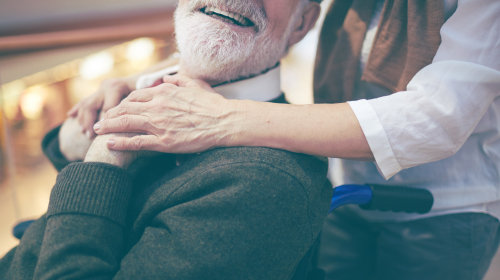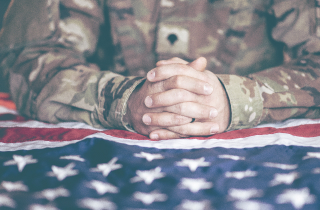Choosing the Best Home Care Services for Veterans: A Comprehensive Guide
Veterans who have served their country deserve not only recognition but also access to high-quality healthcare and support services that cater to their specific needs. As they age or face health challenges, home care services for veterans become a crucial component of ensuring their well-being, comfort, and independence. However, navigating the array of veterans home health care benefits and understanding VA home care for elderly individuals can be overwhelming.
This guide aims to clarify the available options, eligibility requirements, and factors to consider when selecting the best veterans home care assistance to ensure they receive the highest standard of care in a setting that respects their dignity and sacrifices.
Understanding Home Care Services for Veterans
In-home care for veterans is designed to provide personalized assistance, allowing former service members to remain in their own homes while receiving the support they need. These services can range from basic help with daily activities, such as meal preparation and mobility support, to more advanced medical care, including skilled nursing and rehabilitation.
Depending on the level of care required, veterans may qualify for long-term care for veterans, which provides ongoing assistance tailored to their medical conditions, disabilities, or age-related needs. Many home care agencies for veterans work in partnership with the U.S. Department of Veterans Affairs (VA) to offer comprehensive solutions.

Veterans Home Care Eligibility: Who Qualifies?
Before choosing a home care provider, it is essential to determine veterans home care eligibility. The VA offers various programs to assist eligible veterans, which are often based on factors such as:
- Service-related disabilities – Veterans with service-connected disabilities may qualify for extended home care services.
- Income level – Some VA programs are need-based, considering financial circumstances.
- Age and overall health status – Senior veterans with chronic conditions or mobility limitations may be eligible for specific in-home care services.
- VA health care enrollment – Veterans must typically be enrolled in the VA health system to access benefits.
Each case is evaluated individually, so it is advisable to consult a home care agency for veterans or a VA representative to explore the most suitable options.
Types of Home Care Services Available for Veterans
The VA and private home care agencies for veterans offer a wide range of services, ensuring that individuals receive the appropriate level of care based on their health conditions and personal needs. These services include:
- Personal Care Assistance Veterans who struggle with activities of daily living (ADLs) can receive non-medical assistance with:
- Bathing, dressing, and grooming
- Meal preparation and nutrition planning
- Mobility support and fall prevention
- Skilled Nursing and Medical CareFor those with chronic illnesses or post-hospitalization needs, home care may include:
- Medication management
- Wound care and rehabilitation
- Monitoring of chronic conditions such as diabetes or heart disease
- Respite Care for Family Caregivers
Many veterans rely on family members for daily support, which can be physically and emotionally demanding. Respite care services offer temporary relief, ensuring that caregivers can take breaks while their loved ones receive professional assistance. - Hospice and Palliative Care
For veterans facing terminal illnesses, hospice care provides comfort, pain management, and emotional support, either at home or in a specialized facility.
How to Choose the Right Home Care Provider for a Veteran
Selecting the best home care services for veterans requires careful consideration of several factors, including:
Accreditation and VA Approval
Ensure that the home care agency for veterans is VA-certified or recognized by reputable healthcare organizations. This guarantees compliance with quality standards and seamless access to veterans home health care benefits.
Personalized Care Plans
Look for providers who offer customized care plans tailored to the veteran’s specific medical conditions, personal preferences, and lifestyle.
Experienced Caregivers
Caregivers should have experience working with veterans, understanding their unique challenges, including PTSD, mobility limitations, and service-related health conditions.
Cost and VA Coverage
Understanding the financial aspects is critical. Some veterans home care assistance programs are covered entirely by the VA, while others may require co-pays or additional funding sources. Exploring available VA home care for elderly benefits ensures that families maximize financial assistance.
Final Thoughts
Finding the right senior veterans home support involves evaluating available programs, eligibility requirements, and choosing a trusted provider that prioritizes compassionate and professional care. Whether a veteran requires short-term assistance or long-term care for veterans, the right home care services for veterans can significantly enhance their quality of life.
At Angel Care Inc. NY, we are committed to providing exceptional in-home care for veterans, ensuring they receive the dignity, respect, and specialized attention they deserve. Our dedicated caregivers work closely with families and VA representatives to create personalized care solutions that promote health, independence, and comfort.
For more information on veterans home health care benefits, contact Angel Care Inc. NY today and let us help you navigate the path to quality home care services.

The kitchen is often considered the heart of the home, a place where meals are prepared and memories are shared. However, for older adults, this space can present a range of hazards if not properly adapted to their changing physical abilities. From sharp utensils to slippery floors and hot surfaces, the risks associated with kitchen tasks increase with age. Implementing kitchen safety for the elderly is crucial to ensuring a safe and functional environment that allows seniors to maintain their independence while minimizing risks. Our certified HHA provide a guide that explores kitchen safety tips for seniors, outlines strategies for avoiding injuries in the kitchen for the elderly, and discusses senior kitchen modifications that can enhance overall safety. Common Kitchen Hazards for Seniors Aging brings natural physical changes, such as reduced vision, decreased muscle strength, and slower reflexes, all of which can contribute to an increased risk of kitchen accidents. Some of the most common hazards include: Slippery floors – Spills from liquids, grease, or food can lead to falls. Sharp objects – Knives, graters, and other kitchen tools can cause cuts if not handled properly. Hot surfaces – Stovetops, ovens, and boiling liquids pose a burn risk. Poor lighting – Insufficient lighting can make it difficult to see spills, obstacles, or small labels on kitchen appliances. Inaccessible storage – Reaching for high or low cabinets can lead to strain or falls. By recognizing these potential dangers, caregivers and family members can implement proactive senior kitchen modifications to create a safer and more accessible cooking space. Kitchen Safety Tips for Seniors Making small yet effective changes in the kitchen can significantly prevent kitchen accidents for seniors. Here are key strategies to enhance safety: Improve Accessibility Keep frequently used items within easy reach to prevent unnecessary bending or climbing. Install pull-out shelves and lazy Susans to make storage more accessible. Use easy-grip utensils and ergonomic kitchen tools for improved handling. Reduce Fall Risks Place non-slip mats near sinks and cooking areas to provide stability. Clean up spills immediately to prevent slipping. Ensure the kitchen floor is free from obstacles such as rugs, cords, or clutter. Enhance Fire Safety Use an automatic shut-off feature on stovetops and ovens to reduce fire hazards. Keep a fire extinguisher within reach and ensure seniors know how to use it. Avoid loose-fitting clothing while cooking, as fabric can easily catch fire. Improve Lighting and Visibility Install bright LED lighting under cabinets to illuminate workspaces. Use contrast-colored kitchen tools and plates to help those with vision impairments. Label essential items clearly with large, easy-to-read fonts. Ensure Safe Cooking Practices Opt for safe cooking for elderly individuals by using slow cookers or induction cooktops that reduce the risk of open flames. Use lightweight pots and pans with two handles for better grip and control. Encourage seated food preparation by using a sturdy chair or stool at the counter. Elderly Kitchen Aids to Improve Safety There are numerous elderly kitchen aids designed to make cooking safer and more convenient. Some useful options include: Electric can openers – Reduce the effort needed to open cans. Jar openers with rubber grips – Help seniors with arthritis or reduced hand strength. Anti-scald faucet attachments – Prevent accidental burns from hot water. Voice-activated or large-button kitchen appliances – Make operation easier for those with vision or dexterity impairments. Final Thoughts A well-designed, senior-friendly kitchen can significantly enhance an elderly individual's confidence and independence while reducing potential hazards. By implementing kitchen safety tips for seniors and investing in senior kitchen modifications, families can create an environment that promotes both safety and ease of use. At Angel Care Inc. NY, we understand the importance of adapting living spaces to support aging individuals. Whether through home care assistance, meal preparation, or safety evaluations, we are dedicated to ensuring that seniors can enjoy a secure and comfortable home environment.

As individuals age, maintaining cognitive function becomes a crucial aspect of overall well-being. While physical health is often prioritized, mental fitness plays an equally significant role in preserving independence and quality of life. Engaging in cognitive exercises for seniors can help delay memory loss, enhance concentration, and support long-term brain health. With age, the brain undergoes natural changes that can affect memory, reasoning, and processing speed. However, research suggests that incorporating memory exercises for the elderly and mental stimulation for the elderly into daily routines can significantly reduce the risk of cognitive decline. In this article on our Skilled Services, we will explore brain exercises for seniors, effective activities to improve memory in seniors, and strategies for improving focus in the elderly at home while supporting overall cognitive well-being. Why Cognitive Exercises Are Essential for Seniors The aging process often brings a gradual decline in cognitive abilities, making cognitive decline prevention in the elderly a priority for both seniors and their caregivers. Dementia-related conditions, such as Alzheimer's disease, may be influenced by genetics, but lifestyle factors, including mental engagement, social interaction, and a healthy diet, also play a crucial role in maintaining brain health. Studies indicate that regular senior mental health exercises can: Improve short- and long-term memory retention. Enhance focus, reasoning, and problem-solving skills. Delay the onset of cognitive impairment and neurodegenerative diseases. Boost emotional well-being by reducing stress and anxiety. Encourage social engagement, which is critical for mental health. By integrating home care for elderly cognitive health into daily caregiving routines, families and professional caregivers can significantly contribute to an older adult’s cognitive resilience. Best Cognitive Exercises for Seniors Incorporating engaging and meaningful brain exercises for seniors into a daily routine is an excellent way to stimulate cognitive function and prevent memory loss. Below are some highly effective activities to improve memory in seniors that can be easily practiced at home. Memory Games and Puzzles Word Association Games – Encouraging seniors to connect related words improves recall abilities. Jigsaw Puzzles – Enhancing spatial awareness and problem-solving skills. Crossword Puzzles and Sudoku – Boosting vocabulary, concentration, and logical thinking. Card Games like Bridge or Solitaire – Reinforcing strategic thinking and memory retention. Reading and Storytelling Reading books, newspapers, or magazines strengthens comprehension and focus. Listening to audiobooks stimulates cognitive processing. Engaging in storytelling helps improve recall and verbal expression. Learning a New Skill or Hobby Playing a musical instrument, such as the piano or guitar, enhances coordination and memory. Crafting activities like knitting, painting, or sculpting promote creativity and focus. Learning a new language strengthens cognitive flexibility and mental acuity. Physical Exercise with a Mental Twist Tai Chi and Yoga – Combining physical movement with mindfulness, improving cognitive function and stress management. Dance Classes – Stimulating memory by learning and recalling dance sequences. Walking While Engaging in Conversation – Encouraging social interaction while promoting cardiovascular health, which is directly linked to brain function. Technology-Based Brain Training Mobile apps and online platforms, such as Lumosity or Elevate, offer interactive brain training exercises. Virtual reality programs designed for seniors provide immersive experiences that promote engagement. Video games with problem-solving elements improve reaction time and focus. Creating a Dementia-Friendly Cognitive Routine at Home For seniors already experiencing mild cognitive impairment, improving focus in the elderly at home requires a structured yet flexible approach. Caregivers should consider the following: Establishing a Daily Schedule – Consistency in mental exercises reinforces learning and memory retention. Encouraging Social Interaction – Conversations, group activities, and social outings promote brain health. Using Sensory Stimulation – Exposure to music, nature, or aromatherapy enhances cognitive engagement. Maintaining a Healthy Diet – Foods rich in antioxidants, omega-3 fatty acids, and vitamins B and D support cognitive function.Ensuring Quality Sleep – Poor sleep patterns can accelerate cognitive decline, making rest an essential factor in brain health. By incorporating home care for elderly cognitive health, families can help seniors remain mentally sharp and engaged while promoting a fulfilling and active lifestyle. The Role of Home Care in Cognitive Health For seniors who require additional support, professional caregivers play a critical role in implementing dementia home care guidelines that focus on both physical and mental well-being. Home care services can include: Personalized cognitive training programs tailored to the individual’s abilities. Assistance with daily tasks that promote independence and engagement. Companionship and conversation to reduce feelings of isolation and loneliness. Monitoring and adapting cognitive exercises as needs change over time. By seeking specialized home care for elderly cognitive health, families ensure that their loved ones receive comprehensive, compassionate care designed to promote long-term brain function and overall well-being. Final Thoughts Engaging in cognitive exercises for seniors is a proactive step toward preserving memory, enhancing focus, and preventing cognitive decline. Whether through memory exercises for the elderly, interactive games, or physical activities that stimulate the mind, seniors can continue to lead fulfilling and independent lives. At Angel Care Inc. NY, we recognize the importance of senior mental health exercises and work to provide dementia-friendly home care solutions that empower seniors to stay mentally and physically active. If your loved one requires specialized home care for elderly cognitive health, our experienced caregivers are here to support and enhance their quality of life. For more information on cognitive decline prevention in the elderly, contact Angel Care Inc. NY today and let us help you develop a personalized care plan tailored to your family’s needs.



